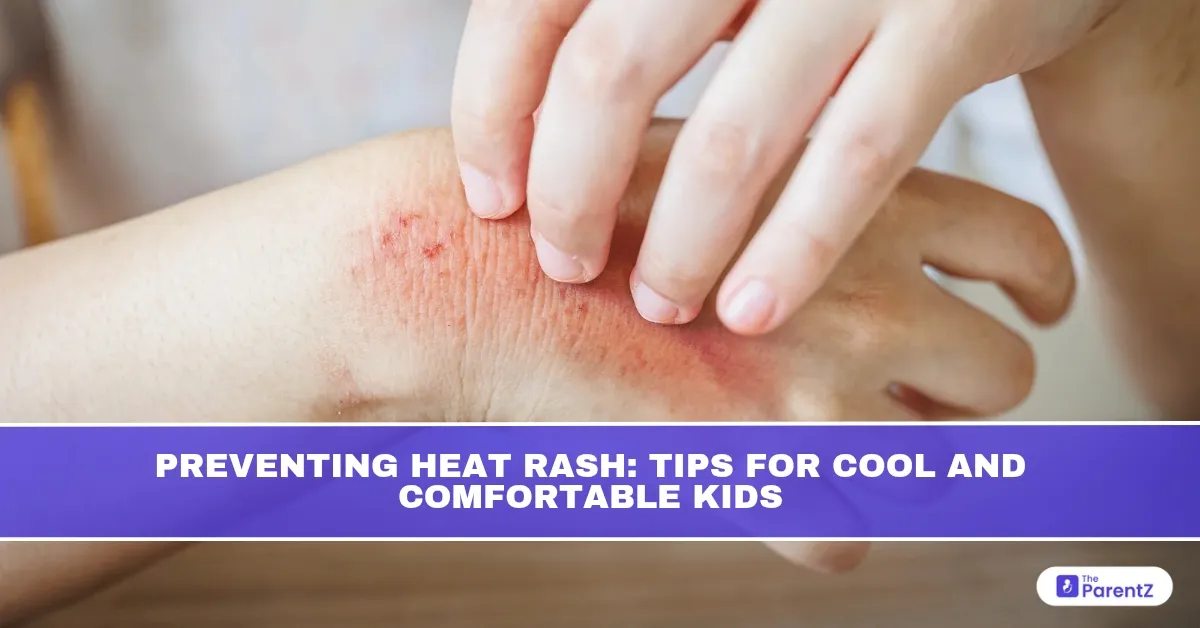Summer brings outdoor fun, but it also increases the risk of heat rash in children. Also known as prickly heat or miliaria, heat rash occurs when sweat gets trapped in the sweat ducts, leading to red, itchy bumps. While not dangerous, it can cause discomfort and irritation, making kids cranky.
Understanding how to prevent and manage heat rash ensures that your little ones stay cool and comfortable during the hot months.
What Is Heat Rash?
Heat rash occurs when sweat glands become clogged due to excessive sweating, trapping moisture under the skin. This can happen when kids:
• Play in hot and humid weather
• Wear tight or synthetic clothing
• Have sensitive skin prone to irritation
• Experience excessive sweating while sleeping or playing
Common Symptoms:
• Small red or pink bumps (mostly on the neck, chest, back, or thighs)
• Itchiness or prickly sensation
• Mild swelling or irritation
• Skin that feels warm and damp
How to Prevent Heat Rash in Kids
1. Dress Them in Light, Breathable Clothing
• Choose loose-fitting, cotton clothes to allow air circulation.
• Avoid synthetic fabrics that trap sweat and heat.
• Opt for light colors to reflect heat instead of absorbing it.
2. Keep Their Skin Cool and Dry
• Use a fan or air conditioning to maintain a comfortable temperature.
• Give cool baths frequently to wash away sweat.
• Gently pat dry their skin instead of rubbing it with a towel.
3. Limit Outdoor Activities in Extreme Heat
• Encourage kids to play in shaded areas during peak heat hours (10 AM–4 PM).
• Schedule outdoor activities in the early morning or late evening when temperatures are lower.
4. Use Talc-Free Baby Powder or Cornstarch
• Apply a light layer of cornstarch to areas prone to sweating (like the neck, chest, and underarms).
• Avoid thick creams or lotions that can clog sweat glands.
5. Keep Hydration Levels High
• Ensure kids drink plenty of water to prevent excessive sweating.
• Offer juicy fruits like watermelon, oranges, and cucumbers to keep them hydrated.
6. Use Cool, Breathable Bedding
• Choose cotton bed sheets and light blankets.
• Keep their sleeping area cool and well-ventilated.
• Avoid plastic mattress covers, which trap heat.
Home Remedies for Heat Rash Relief
If your child develops heat rash, try these simple remedies:
• Aloe Vera Gel: Soothes itchy skin and reduces redness.
• Oatmeal Bath: Helps calm irritation—just add 1 cup of oatmeal to their bathwater.
• Cucumber Slices: Placing cool cucumber slices on rashes can provide instant relief.
• Cold Compress: Use a damp, cool washcloth on affected areas for 10–15 minutes.
When to See a Doctor
Most cases of heat rash clear up within a few days, but seek medical attention if:
• The rash gets worse or doesn’t improve after a few days.
• There are blisters, pus, or severe swelling.
• Your child develops a fever or appears lethargic.
Conclusion
Heat rash is a common summer issue, but it can be easily prevented with proper care. Keeping kids cool, dry, and hydrated will help them stay comfortable and enjoy summer activities without skin irritation. If a rash does develop, simple home remedies can provide quick relief.
By taking proactive steps, you can ensure a happy and rash-free summer for your little ones!





Be the first one to comment on this story.